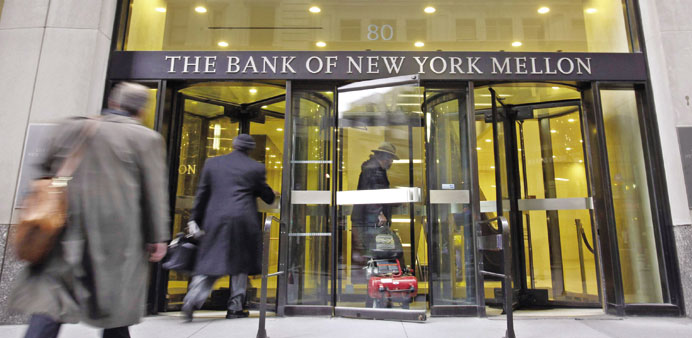Argentina’s central bank said it took the measure because Bank of New York Mellon failed to fulfill technical requirements to operate in the country.
Argentina said yesterday it has stripped Bank of New York Mellon’s authorisation to operate in the country, its latest move against the bank, which blocked an Argentine government debt payment on the orders of a US court.
BNY Mellon, a financial intermediary between the Argentine government and its bondholders, has been caught up in a bitter legal battle between US investment funds and the South American country, which in July defaulted for the second time in 12 years.
Argentina’s Congress is due today to discuss a law that would replace BNY Mellon as intermediary for payments on foreign law bonds with state-controlled bank Banco Nacion, as part of a new debt restructuring plan.
The central bank “has revoked BNY’s authorisation for representation in Argentina,” Cabinet Chief Jorge Capitanich said in his daily briefing. The authorisation applied specifically to two BNY Mellon officials.
The central bank said it took the measure because the US bank failed to fulfill technical requirements to operate in the country.
BNY Mellon in June obeyed a US court ruling to block a $539mn interest payment on debt that was restructured following Argentina’s record 2002 debt default.
The court had ruled Argentina could not pay holders of restructured bonds unless it also paid “holdout” US investment funds, which refused the country’s 2005 and 2010 bond swaps in the wake of the 2002 default on about $100bn of debt.
Argentina previously threatened to sue BNY Mellon if it did not transfer the funds to bondholders.
On Tuesday, BNY Mellon said a lawsuit filed against it by a group of hedge funds holding Argentine government debt and demanding access to their share of the blocked coupon payment was “without merit.”
“We continue to follow the current court order to hold onto the money,” a spokesman for BNY Mellon told Reuters.
The debt crisis has taken a toll on Argentine assets and the peso, which sank to a record low of 14.05 per dollar on the black market yesterday despite the central bank’s lifting interest rates in an apparent bid to ease pressure on the currency.
A central bank source, speaking on condition of anonymity, said that revoking BNY Mellon’s authorisation would not prevent it from transferring the frozen $539mn to bondholders if it decided to fulfill the payment.
BNY Mellon can appeal the measure and put forward new officials for authorisation to operate in the country, but the central bank could refuse to accept them, the source added.

